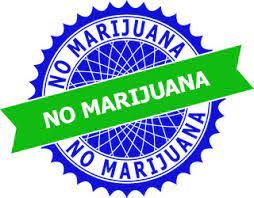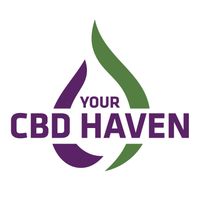CBD 101: FAQ's
What is CBD? How Does CBD Work? What are Potential Benefits?
...and MORE answers to commonly asked questions.
Our primary goal at YOUR CBD HAVEN is to educate our customers like you about some of the current known science about CBD...clearing up fact from fiction, hype from reality....so you can confidently navigate the CBD landscape and evaluate which brands, delivery modalities and dosage levels could work best for YOU, your FAMILY...and even your PETS!
STOP BY or CALL if you have more questions!

Our Mission:
To help consumers understand the WHY, HOW and WHEN CBD could help address a multitude of physical and emotional conditions in both humans AND our pets: chronic & acute pain; stress & anxiety; insomnia...and so much more.
WithOUT getting high!
What IS CBD?
CBD is shorthand for cannabidiol, one of the two most prevalent of 100+ cannabinoids – active chemical compounds that act on the receptors in our bodies – found in the cannabis plant.
The other most prevalent cannabinoid is tetrahydrocannabinol (THC) which produces the "high" we associate with marijuana.
2. What is the difference between Hemp and Marijuana?
CBD and THC are from two different varieties – or subspecies- of the Cannabis sativa plant.
CBD is extracted from the industrial hemp subspecies and THC from the marijuana subspecies.
The difference between the two plants is in its breeding, climate and environmental conditions that create specific amounts - or percentages - of THC and CBD contained in each plant.
The term ‘hemp’ refers to the industrial/commercial use of the cannabis stalk, stems, seed and flowers used for textiles, foods, papers, body care, products, detergents, etc., and CBD oil. Hemp has almost no THC, the psychoactive component in marijuana.
The international definition of hemp is cannabis sativa which contains 0.3% or less THC. (three tenths of one percent – virtually none!). Cultivation is regulated by the US Department of Agriculture.
'Marijuana’ refers to the medicinal, recreational and spiritual use resulting from smoking or eating cannabis, flower or leaf resin that contains higher levels of THC and lower levels of CBD.
3. Will CBD make me "high"?
The CBD molecule does not produce any psychoactive effects because it is so low in THC, the “high” molecule. The only euphoria you might feel would come from the harmonizing properties of our products. At most, you may just feel a relaxed clarity.
4. How much CBD should I take with each dose?
Each individual's endocannabinoid system is different; therefore, the amount of CBD required by every individual to meet their needs can vary. It's better to begin with a low level and work your way up.
Typically, we recommend starting with 25-30mg of CBD per day, and then increasing the dose as needed by about another 25mg.
5. Should I talk to my doctor before taking CBD?
Always consult your doctor first if you’d like to try CBD, especially if you have a serious health condition - like high blood pressure - or are taking medications. Don’t stop taking your prescription medications to try CBD, unless you have the go-ahead from your doctor.
6. Are there any side-effects of using CBD that I should look out for?
To date, there have been no adverse side effects discovered. According to a report from the World Health Organization, “CBD exhibits no effects indicative of any abuse or dependence potential [meaning] there is no evidence of health-related problems associated.”
That said, everyone’s body is different and may tolerate and adapt to dietary supplements in different ways. Therefore, we recommend consulting your physician before using any dietary supplements, including CBD.
7. Are your products tested / do you have lab results?
Absolutely! We carry only a few select brands that meet - or exceed - the highest standards of quality, integrity and safety. Each product is tested by an accredited third party lab, and accompanied by their Certificate of Analysis (COA) Report to ensure compliance to label ingredients, consistency and quality.
12. Does CBD cure any conditions?
While CBD provides a variety of health benefits as a dietary supplement, our CBD products are not intended to diagnose, treat, cure, or prevent any disease. We encourage you, however, to seek out trusted sources and studies on the uses and benefits of cannabidiol (CBD) for those living with different conditions. We make no medical claims about our products, but we may refer to related studies in order to facilitate your access to this valuable information.
13. What is the US Government’s legal definition of hemp?
Hemp, as defined by the U.S. Government, is any part of the Cannabis Sativa L plant that contains a dry weight of less than .3% THC.
Section 7606 of the Agricultural Appropriations Act of 2014 provides a legal definition of industrial hemp: “The term ‘industrial hemp’ means the plant Cannabis sativa L. and any part of such plant, whether growing or not, with a delta-9 tetrahydrocannabinol concentration [THC] of not more than 0.3 percent on a dry weight basis.”
To be considered ‘legal’, the hemp must be grown in compliance with state or federal guidelines. The guidelines vary between states.
14. What is the difference between CBD oil and the hemp products I can buy at the grocery store, gas stations and on Amazon?
Hemp products sold in stores are most often made with hemp seed oil, which contain only trace amounts of CBD, if any. Hemp seed oil can be a great source of nutrition; however, its marginal quantity of CBD per weight makes it unfeasible as a CBD supplement.
The website, Amazon, cannot legally sell CBD, so any products you order will only be hemp seed oil...which again, does not contain the CBD molecule.
The CBD hemp oil products we carry are extracted from the stalk and flowers of specifically selected hemp cultivars, offering higher percentages of CBD by weight.
15. .Is CBD known to be addictive?
No.
Many people interested in trying CBD oil might be hesitant to do so since it derives from the same genus as marijuana, Cannabis. If you’re one of those worried about addiction, we are here to help clarify any concerns.
Countless studies have been conducted on CBD and all have found that it does not cause addiction issues. The World Health Organization (WHO) embarked on a massive study of drugs, and their findings showed that CBD does not lead to addictive problems. They wrote in their report that “In humans, CBD exhibits no effects indicative of any abuse or dependence potential…To date, there is no evidence of public health-related problems associated with the use of pure CBD.”
Addictions are often caused by dopamine regulation issues. Using drugs or other substances stimulates dopamine neurons in the brain, which causes a dopamine rush that provides pleasure to a person. The user then becomes hooked on this sensation and tries to recreate it over and over, eventually developing an addiction.
CBD, unlike other drugs, does not interact with dopamine neurons. So, using CBD will not lead to the dopamine rush for the user the same way cocaine, heroin and other drugs do.
16. Can CBD be used for pets?
CBD Pet products have recently hit the market with great success. Old pets get arthritis and achy joints, just like people. They also get anxious and fearful, especially during fireworks and thunderstorms. Or suffer from separation anxiety.
And just as in humans, the exact dosage required to help pets is largely unknown, and requires from trial and error.
However, it's fair to assume they need less due to their typically lower body weights when compared to people. An eight-pound Maltese doesn’t need the same amount of hemp extract as a 180 pound man.
So, the next time your dog or cat is going to freak out because of fire works or thunder, consider giving them some CBD instead of Benadryl or diazepam. It won’t dope them up, but it could help them weather the storm.
17. What are Possible Side Effects of CBD in Pets?
While there’s no scientific data on the side effects of CBD usage for dogs, there are potential side effects based on how CBD affects humans. To minimize any potential side effects, make sure you are following the proper dosage.
- Dry mouth: Research has shown that CBD can decrease the production of saliva. For dogs, this would manifest as an increased thirst.
- Lowered blood pressure: High doses of CBD have been known to cause a temporary drop in blood pressure. Even though the drop is small, it might create a brief feeling of light-headedness.
- Drowsiness: Pet owners have used CBD to treat anxiety. The calming effect of CBD can also cause slight drowsiness, especially when using higher doses.
